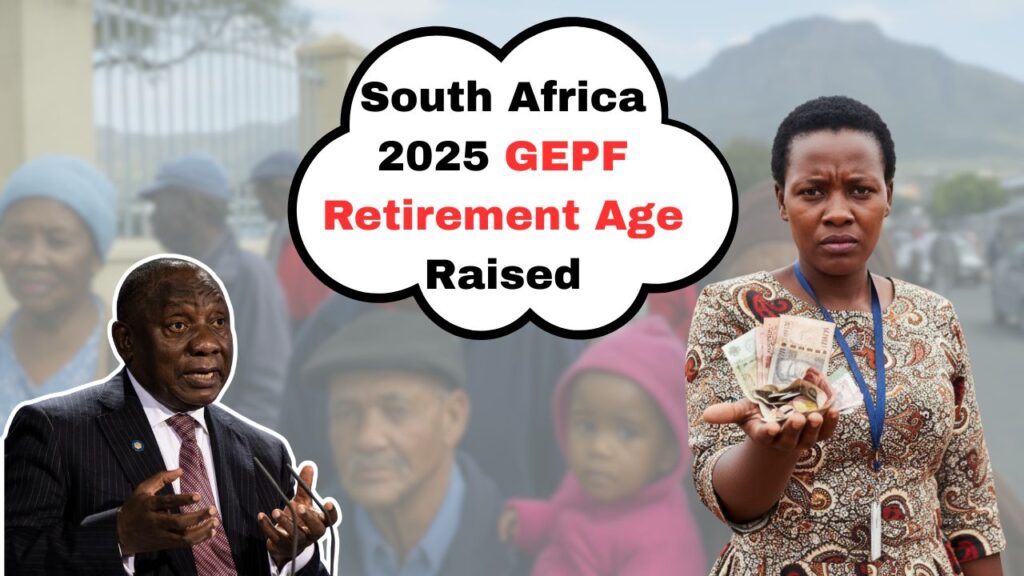Other countries have already made similar changes to their laws. South Africa’s government wants to make public workers retire at 67 instead of 65. This change would affect over 1.2 million people who work for the government. The new rule would start on August 1 2025. Nothing like this has been done before. These changes could create problems for public pension funds in the future. The next parts of this document explain how this affects workers and what they can do to get ready. This is important because workers need time to plan for their retirement.

New GEPF Retirement Age Limit: What the 67-Year Rule Means
The Government Employees Pension Fund has made a big change. From August 2025 public workers will need to work until they are 67 to get full retirement benefits. This affects teachers nurses and police officers who were born after August 1 1958. People who retire before this date or who are already retired won’t see any changes. Right now workers can retire between ages 60 and 64. Those who reach these ages by July 2025 can still retire under the old rules until June 30 2026. Workers can still choose to retire at 60 but they will get less money because they won’t pay into the fund for as long.
Why the South African Government Is Pushing Retirement to 67
The change helps deal with people living longer and rising costs that affect the GEPF’s money pool of R2.34 trillion. When people live longer they take more money from their pension which uses up the savings. Making people work longer means they pay into their pension for more years. This builds up more money in the fund and lets people get better monthly payments when they retire. Other countries like the UK and Australia already do this to keep their pension funds healthy.
How This Impacts South Africa’s Public Servants: Jobs, Benefits & More>
The new rules bring good and bad changes. Public sector workers can now save more money for retirement and get better pay by working longer. But this isn’t great for everyone. People in tough jobs like nursing & police work might struggle to stay healthy and keep a good balance between work & life when working extra years. The government says young people will find more jobs but labor unions disagree. They think older workers staying longer in their jobs makes it harder for new graduates to start their careers. These different views show how complex the situation is for workers of all ages.
Exceptions to the Rule: Who Can Still Retire Before 67?
The new retirement rules will start in August 2025. Anyone under 60 will need to work until they are 67 years old. People between 60 and 64 will follow different rules based on their age group. Some workers might not have to wait until 67 if they have health problems. They need to get checked by a doctor first. Workers who do tough or dangerous jobs can also stop working earlier. These workers won’t face big penalties for retiring before 67.
When and How the 67-Year Retirement Policy Will Be Enforced
Things Employees Need to Do: Look at Your Pension:
– Go to gepf.co.za & check your GEPF statements.
– Make sure your payments and benefits are correct. Talk to Money Experts: Get help to save more money for a longer work life.
– Go to GEPF Events: Join the retirement meeting on August 20 2025 in Kabokweni Nelspruit.
Fix Your Info: Check that your work history is right with HR & GEPF. You can use GEPF’s website to see how much money you’ll get and track your claims.





